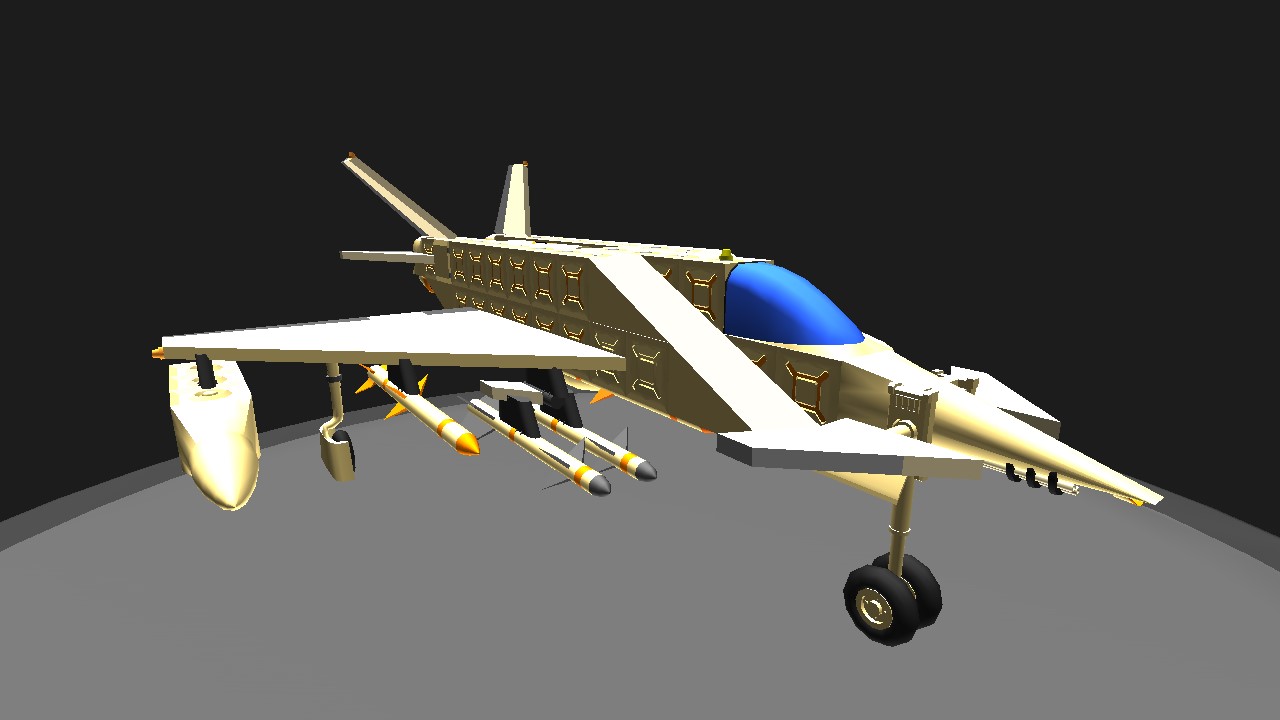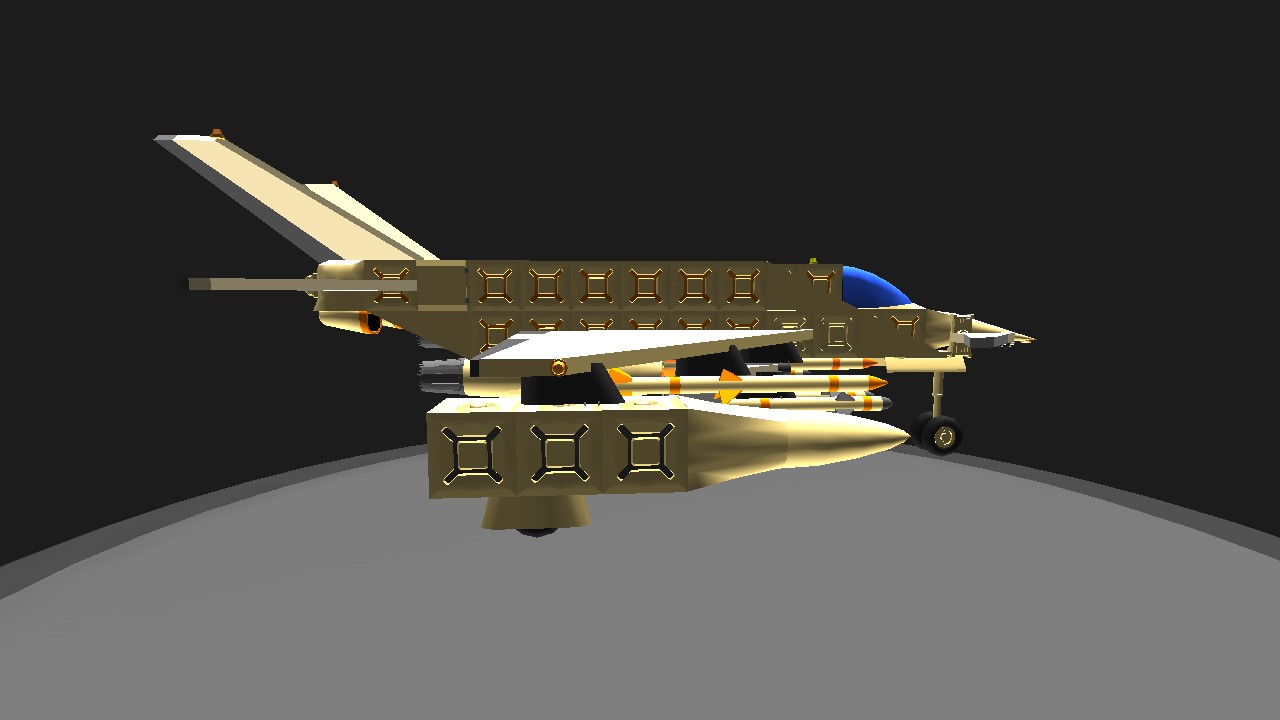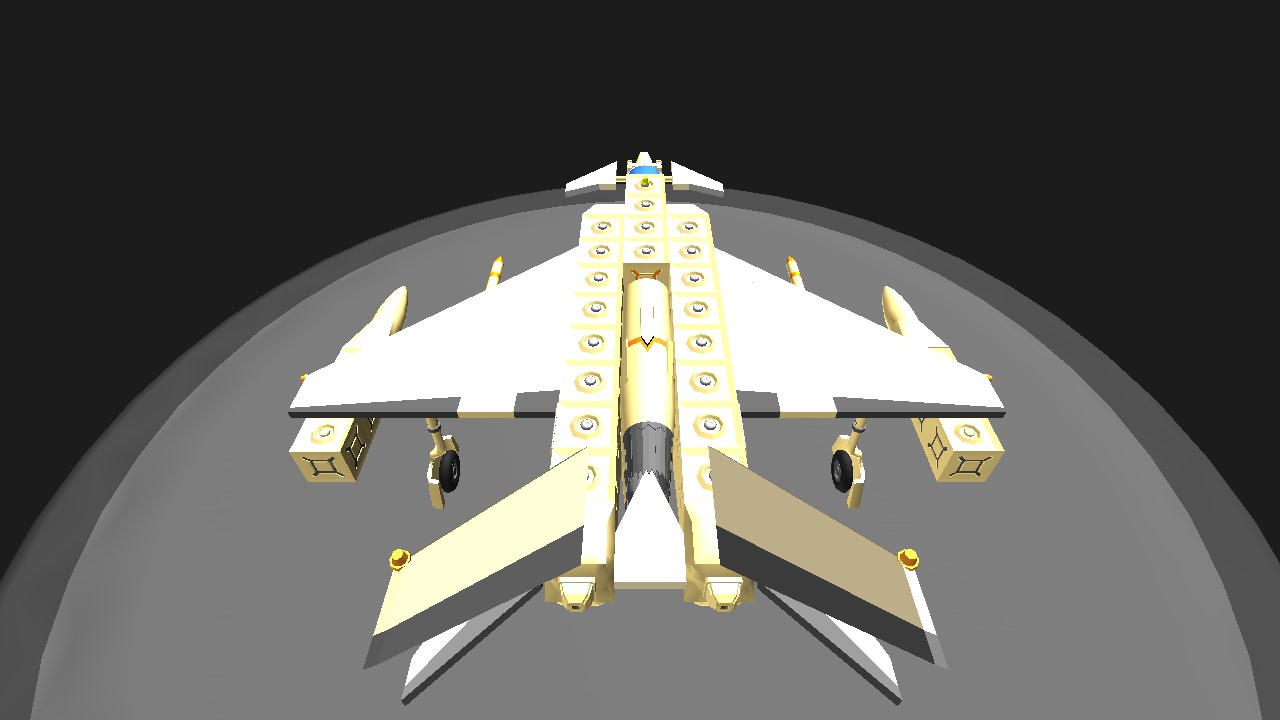Controls:
1. Arm Weapons Systems
2. Navigation Lights
4. Jettison Fuel Tanks
5/6: Jettison Hardpoints Payloads
7. Parachutes
Classification: Multirole / Air Superiority Fighter
The F-19D was inherently different from the Block 30/32 F-19C in more ways than one. The aircraft featured a more aerodynamic nose cone whilst having a shorter lateral profile. This accompanied with the 3 new miniaturised BFE-150 afterburning turbofan engines mounted in longitudinal fashion along the center of mass meant that the aircraft was incredibly powerful. The total missile count was reduced from 10 to 8 air-to-air capable munitions although the missiles were brand new (4x AIM-9 short range & 4x AIM-120 long range missiles). However, the plane would only adapt two dual pylons from its predecessor meaning two AIM-120s were directly mounted to the fuselage also meaning that pilots could no longer jettison all missiles. Although not classified as a stealth fighter, measures were taken to reduce the F-19D's radar cross-section (RCS). The airframe and even hardpoints were rebuilt with radar absorbent material (RAM) to reduce the frontal radar signature of the aircraft. The main inlet was designed to hide the engine whilst reflecting radar signals away from the aircraft. Lastly, the aircraft featured new canard foreplanes directly linked to the pitch control of the aircraft resulting in higher maneuverability at low and high speeds.
Specifications
General Characteristics
- Predecessor F-19A Thundercrash
- Created On Android
- Wingspan 23.4ft (7.1m)
- Length 29.4ft (9.0m)
- Height 10.9ft (3.3m)
- Empty Weight 2,208lbs (1,001kg)
- Loaded Weight 19,274lbs (8,742kg)
Performance
- Power/Weight Ratio 5.246
- Wing Loading 129.9lbs/ft2 (634.4kg/m2)
- Wing Area 148.3ft2 (13.8m2)
- Drag Points 2312
Parts
- Number of Parts 124
- Control Surfaces 8
- Performance Cost 683






